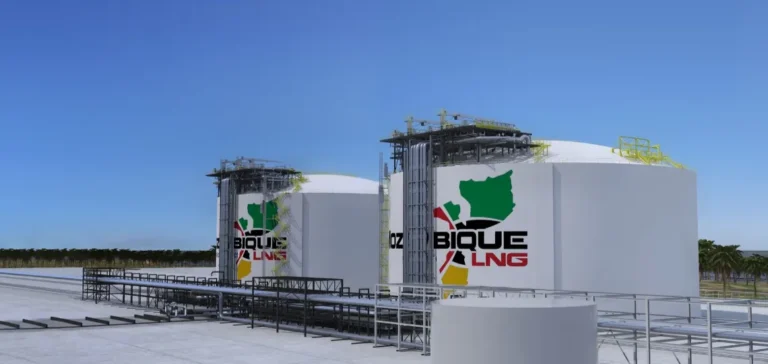The government of Mozambique has approved the resumption of the Golfinho/Atum gas project, led by TotalEnergies, while launching an audit to assess the costs accumulated during its suspension. The project was halted following a deadly 2021 attack in the town of Palma, near the site. The expenditure review is part of a control process ahead of any final authorisation to resume operations.
A $20bn project awaiting restart
With an initial investment estimated at $20 billion, this liquefied natural gas development is considered one of the largest in southern Africa. According to the authorities, the audit will specifically cover the force majeure period declared by TotalEnergies following the attack. The French group has formally requested $4.5 billion (€4.19bn) in compensation for the cost overrun caused by the extended suspension, along with a ten-year extension of the concession.
Restart conditions and legal uncertainty
The Mozambican government has not yet stated whether it will agree to the demands made by TotalEnergies. In a letter addressed to President Filipe Nyusi, the company expressed hope of resuming production in 2029, subject to the approval of its revised development plan. The French major holds a 26.5% stake in the project, for which it is also the lead operator.
Meanwhile, TotalEnergies is facing several legal proceedings in France. A preliminary investigation has been opened for involuntary manslaughter following complaints from survivors of the Palma attack, who accuse the company of failing to protect its subcontractors. Another complaint, filed in Paris on Monday by the NGO European Center for Constitutional and Human Rights, targets the company for alleged complicity in war crimes.
A strategic revival for Mozambique
The project’s return to operation could reposition Mozambique on the global natural gas map. According to a 2024 report by consulting firm Deloitte, the projects led by TotalEnergies, ENI, and ExxonMobil could place the country among the top ten global producers, contributing an estimated 20% of Africa’s output by 2040.
Security remains a critical factor. The insurgency in Cabo Delgado province, driven by a group affiliated with the Islamic State organisation, has caused more than 6,300 deaths since 2017. Testimonies reported by Politico also mention abuses committed by Mozambican armed forces around the gas site.






















